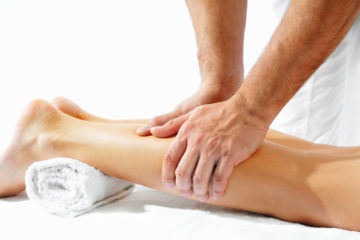
![Beautiful blonde pregnant woman exercising with a fitness ball. [url=http://www.istockphoto.com/search/lightbox/9786766][img]http://dl.dropbox.com/u/40117171/sport.jpg[/img][/url]](http://zenithphysiopilates.comwp-content/uploads/2016/05/iStockpfpilates_sized.jpg)
Pelvic Health Physiotherapy
What is Pelvic Health Physiotherapy?
-
incontinence (leakage of pee)
-
urinary frequency and/or urgency (need to pee often / can't wait to get to a toilet)
-
bowel issues including constipation, straining or pain
-
unexplained pain in the low back, the pelvic region, the genital area or the rectum
-
pain during or after sex
-
organ prolapse
-
pelvic pain associated with endometrioses, interstitial cystitis, and prostatitis (just to name a few)
-
pre and post pregnancy issues including pain, leakage, bulging and scarring from c-sections, tearing or episiotomy
-
It is not normal to leak when you laugh, cough or sneeze.
-
It is not normal to have pain with intercourse.
-
It is not normal to feel pressure or heaviness in your pelvic region.
-
It is not normal to feel pain in the pelvic region.
Who do we treat?
We treat women of all ages and for a wide range of issues. Young athletes who may have incontinence issues, women pre and post pregnancy, sedentary women with pain issues, bowel or bladder issues and pre or post menopausal women may all benefit from pelvic health physiotherapy.
What to expect on your first visit
Your physiotherapist will want to know all the details of your problem, which can take some time, as most people have had quite a journey to even get to a pelvic health physiotherapist. They will want to know what you have tried so far, what surgeries or procedures you have had, what medications you are on and what your general health is like. They will also want to know what makes your pain or leaking worse and how it affects your life. The primary difference with having a problem in your pelvis, compared to having a problem in your shoulder or knee for example, is that it affects some of life's most important functions. So the therapist will ask you about how how often you go to the bathroom, whether it is painful to urinate or have a bowel movement and how and if it has affected your sexual relationships. After all, the aims or goals of treatment are often things like being able to have intercourse again without extreme pain, being able to sit through a movie without having to get up to go to the bathroom, being able to have a pain-free bowel movement or being able to return to hiking or the gym without the fear of leaking or your pain increasing.
At this point your physiotherapist will likely evaluate your posture, breathing patterns, other joints and muscles in your spine and hips, along with sensory and reflex tests. She will then directly evaluate the pelvic floor muscles for their movement, strength, and coordination. This is done internally through the vagina (similar to a PAP test), and is the only way for the physiotherapist to see if your muscles, tendons, ligaments and other structures are working the way that they should be. Research continues to show that when pelvic floors are assessed internally, treatments carried out by pelvic health physiotherapists are highly successful and should be the first line of defence before surgery or medication. Always remember that pelvic health physiotherapists are highly trained, sensitive professionals who will discuss all aspects of assessment and treatment with you thoroughly before proceeding.
Our Pelvic Health Physio Staff
Rebecca Libby
Pelvic Health & Musculo-skeletal Physiotherapist, Pilates Instructor & Osteopath Read MoreNatalie d'Entremont
Pelvic Health & Musculo-skeletal PhysiotherapistNatalie is an experienced Musculoskeletal and Pelvic Floor Physiotherapist. She completed a Master’s degree in Physiotherapy from Dalhousie University in 2015. She treats patients ranging from youth to elderly with musculoskeletal conditions, and females with pelvic floor dysfunction.
Read MoreOur Services
Acupuncture
Acupuncture stimulates the body's natural healing abilities and promotes physical and emotional well-being. It is an important part of Traditional Chinese Medicine and is used to correct…
Read MoreMassage Therapy
Massage therapy is a hands-on treatment that involves manipulation of the soft tissue structures of the body to prevent and alleviate pain, discomfort and muscle spasm. Massage therapy…
Read MoreOsteopathy
Osteopathy is “a natural medicine which aims to restore function in the body by treating the causes of pain and imbalance. To achieve this goal the Osteopathic Manual Practitioner…
Read MorePhysiotherapy
At Zenith Physio Pilates we are proud to offer one on one physiotherapy treatments, where all of your appointment time will be spent directly with your therapist. Our Physiotherapists…
Read MorePelvic Health Physio
Pelvic floor dysfunctions are more common than you can imagine and one of the reasons that you may not know this is...we do not talk about them! Numerous women suffer...
Read More






